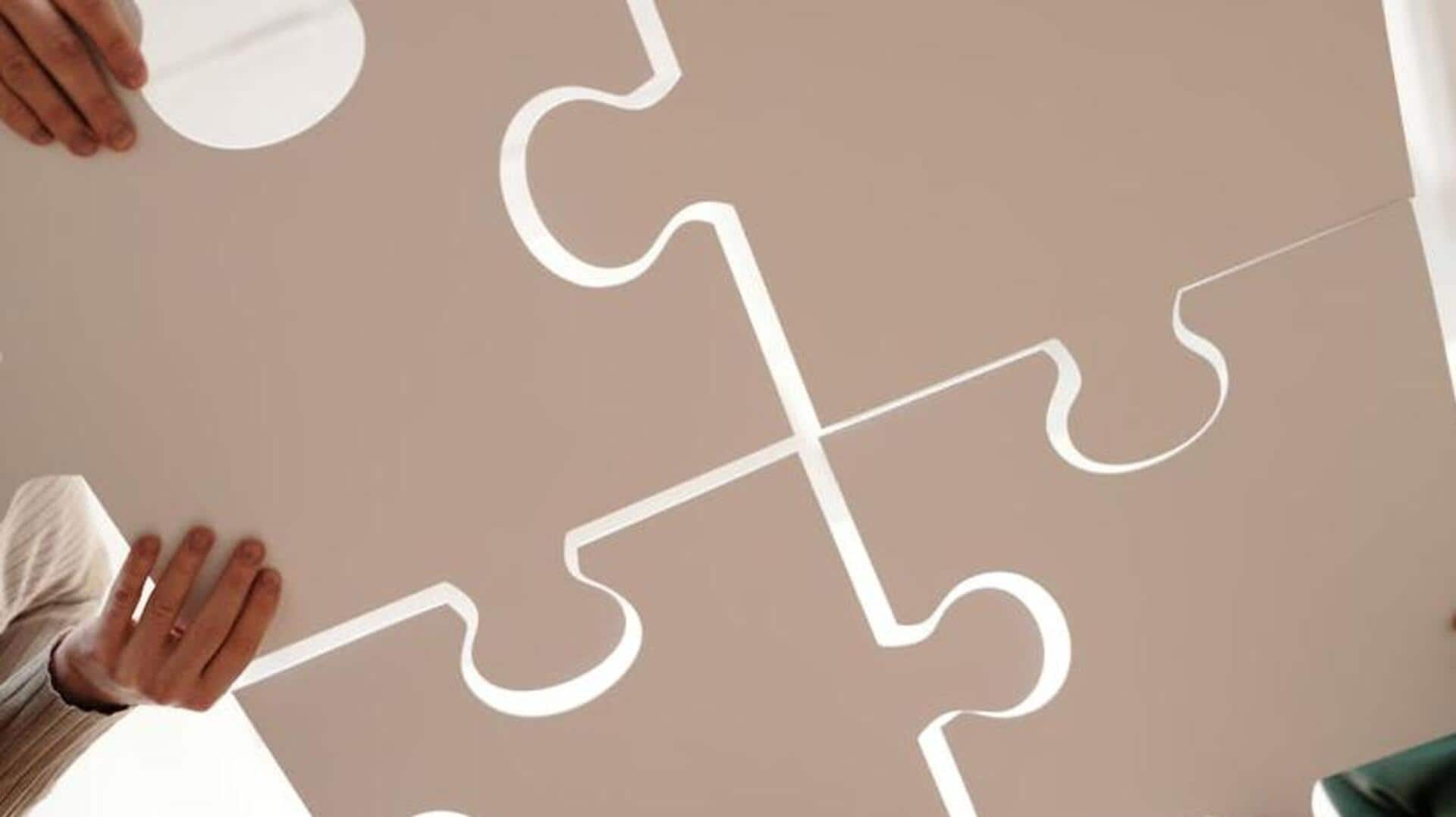
Encouraging persistence with weekly jigsaw puzzles
What's the story
Starting a weekly jigsaw puzzle challenge for kids is a fun and easy way to build patience and problem-solving skills at home. This game is not just entertaining but also improves cognitive abilities, attention to detail, and most importantly, patience. By dedicating a specific time each week for puzzles, kids can establish a routine that fosters focus and perseverance, skills that are valuable in all areas of life.
Choosing difficulty
Selecting the right puzzle
The secret to keeping weekly jigsaw puzzles exciting is choosing puzzles that are age-appropriate and match your child's abilities. For younger kids, begin with puzzles that feature large pieces and simple pictures. As they get older and more confident, you can gradually introduce more complex puzzles. This way, the challenge remains fun and doesn't become frustrating or discouraging.
Space setup
Creating a puzzle-friendly environment
Set aside a quiet, well-lit area specifically for puzzle activities where distractions are minimized. A comfortable table or floor space where the puzzle can be left undisturbed between sessions is ideal. This dedicated space communicates to children that puzzle time is special, helping them shift gears into a focused mindset more easily.
Consistency is key
Establishing a routine
To cultivate persistence, schedule regular puzzle time Choose a specific time each week, like after school on Fridays or early Sunday mornings Making it a regular fixture reinforces its importance and makes it a part of their routine This is a key to teaching persistence, as it shows them the importance of setting aside time to complete tasks regularly.
Recognition matters
Celebrating milestones
Every finished puzzle deserves a round of applause. Small gestures of acknowledgment, like a high-five or simply pausing to appreciate the completed puzzle before dismantling it, can work wonders for motivation. By celebrating both the effort and accomplishment, children know their hard work is seen and appreciated. This not only fosters perseverance but also builds confidence and a sense of pride in their abilities.
Puzzle Partners
Encouraging teamwork
While solo effort is important, occasionally turning puzzle time into a collaborative activity can teach kids valuable teamwork skills. Working on larger puzzles with family or friends exposes children to different strategies and perspectives in problem-solving, fostering adaptability and persistence. Plus, it's way more fun! They'll learn the ropes of working as a team, a skill that will benefit them throughout life.